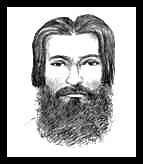US attack aircraft helped Afghan border police repel an attack last night on their outpost in the east. The Haqqani Network and attached al Qaeda forces from the Shadow Army Army, or Lashkar al Zil, targeted the Afghan Border Police during a night raid.
“A group of armed rebels stormed a center of Border Police in Tanai district Saturday night and police with the support of international forces’ aircrafts retaliated killing 26 insurgents,” Shir Ahmad Kuchi, the commander of the Afghan Border Police in Khost, told Xinhua.
The airstrike killed 26 Haqqani Network and allied fighters, including a Chechen, according to a local Afghan television station.
The International Security Assistance Force confirmed the strike but did not provide information on enemy deaths.
“Afghan forces came under attack and asked for assistance and we provided it in the form of air support,” a spokesman told Reuters.
Khost and the neighboring provinces of Paktika and Paktia are strongholds of the Haqqani Network, the Taliban subgroup led by Jalaluddin Haqqani and his son Sirajuddin. The Haqqani Network is in control of most of the rural areas of Khost, Paktika, and Paktia provinces, US military and intelligence officials told The Long War Journal.
The Haqqani Network is based out of eastern Afghanistan and across the border in Pakistan’s Taliban-controlled tribal agency of North Waziristan. The network is also active in the Afghan provinces of Ghazni, Logar, Wardak, Kabul, Kunar, Nangarhar, Helmand, and Kandahar provinces.
The Haqqanis have extensive links with al Qaeda and with Pakistan’s military intelligence agency, the Inter-Services Intelligence, or ISI. These relationships have allowed the Haqqani Network to survive and thrive in North Waziristan. The Haqqanis control large swaths of North Waziristan, and run a parallel administration with courts, recruiting centers, tax offices, and security forces.
Siraj has risen in prominence over the past few years. He is believed to be the mastermind of the most deadly attacks inside Afghanistan and to be the senior military commander in eastern Afghanistan. The US military has described Siraj as the primary threat to security in eastern Afghanistan.
Siraj is considered dangerous not only for his ties with the Afghan Taliban, but also because of his connections with al Qaeda’s central leadership, which extend all the way to Osama bin Laden. On March 25, the US Department of State put out a $5 million bounty for information leading to the capture of Siraj.
Al Qaeda has promoted Siraj to serve on the military shura, or council, a senior US military intelligence official told The Long War Journal. Siraj is known to mediate disputes between Taliban groups in Pakistan and is also credited with the group’s virtual control of the eastern Afghan provinces of Khost, Paktika, and Paktia.









5 Comments
Good work. Always good when the enemy fails to bug out before the air power arrives.
I’m truly curious as to the true number of ‘Chechens’ fighting in the AfPak area. I can’t recall many Chechen prisoners being taken or many positively ID’d ‘kills’ of Chechen fighters over the past 8 years of war. IIRC, the handful of Russians held in Guantanamo weren’t Chechens but white or Slavic Russian converts.
I don’t doubt there are some, but they always seems more of a rumour than anything. The sight of lighter-skinned fighters automatically assumed to be Chechens instead of Uzbeks or other ethnicities. Similar to how all white contractors are assumed to be ‘CIA’ by the enemy.
I also have to wonder. I don’t believe there are large numbers of Chechens in Afghanistan or Pakistan. Not to say that there aren’t any, but I don’t believe the numbers are as high as some believe.
The Chechens used to be the “boogey men” of the jihad arena. They had established a reputation as being ruthless fighters. So, anytime that there was a conflict with Muslim insurgent groups, the rumor always seemed to spread around that the Chechens were sending hundreds of fighters to help support. It was the Chechens that actually started the practice of beheading captives and it got exported to the Balkans, and then we saw it in Iraq. Hence, the reason for the reputation.
However, if there were as many Chechens reported fighting in the many different areas they were preportedly fighting in, there wouldn’t be any left in Chechnya to continue their activities there.
Anytime I see reports of a bunch of Chechens in any area besides Chechnya, I take it with a grain of salt.
The Thunder Run has linked to this post in the blog post From the Front: 11/30/2009 News and Personal dispatches from the front and the home front.
This is good stuff. However, WHO was calling this “air” in? I would like to know if there were coalition forces calling in the strikes. I don’t think the ANP have the ability to do this..
Attacking outpost has been one of the tactics Taliban have used before and gained victory only in two ambushes of such a kind in East and N.east of Afghanistan during dusk.
The number of Chechens fighters does not exceed more then hundreds mostly in Taliban rank but have their own command and line up. According to friends from Army who actually faced them, Chechen fighters are the most ruthless individuals who run towards where the bullets are fired from, most of the suicide attacks are carried out by these ruthless fighters I don’t know what exactly they get helped crossing the border but I do believe if there is a coordination between AFGH/PAK forces they can easily sandwich these random Taliban forces.
According to Muslim suicide attacks are against the religion, one wonders who then these suicide bombers are, calling themselves Muslim and killing muslims?